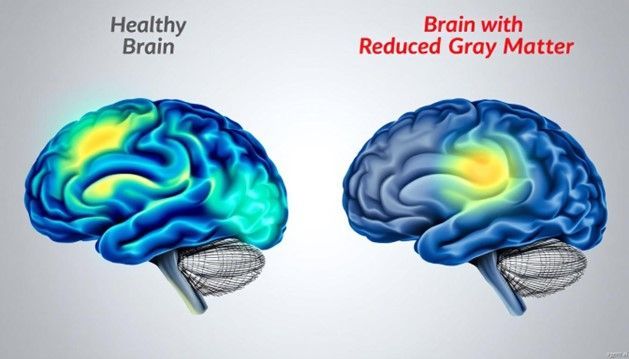What are the early warning symptoms of Alzheimer's
Did you know that Alzheimer's begins affecting the brain long before memory problems appear? Emerging research shows that subtle behavioral changes—like impulsivity and mood swings—might be the first signs of brain damage, allowing us to detect the disease earlier than ever before.
The Two Phases of Alzheimer’s Brain Damage
Recent studies funded by the National Institutes of Health (NIH) reveal that Alzheimer’s disease progresses through two distinct phases, challenging the traditional view that it affects only memory in its early stages.
- Phase 1: Silent Brain Damage
In this phase, Alzheimer’s quietly damages inhibitory neurons that help regulate brain activity. These neurons send calming signals to other brain cells. When damaged, individuals may show changes in impulsivity, irritability, or emotional control. This stage often occurs years before memory loss sets in, and because the symptoms are subtle, they are frequently overlooked.
Research shows that the middle temporal gyrus, a brain region important for language, memory, and vision, is especially vulnerable to early damage. The loss of somatostatin (SST) inhibitory neurons has surprised researchers, as it suggests the disease begins impacting mood and behavior long before it impacts cognition. -
Phase 2: Destructive, Widespread Brain Damage
This second phase aligns with the symptoms we typically associate with Alzheimer’s: memory loss, confusion, and difficulty completing daily tasks. During this stage, plaques and tangles (the hallmark proteins of Alzheimer’s) accumulate rapidly, causing the death of neurons and widespread damage to key brain regions.
Behavioral Changes: Early Alarms Before Cognitive Decline
While families often focus on memory loss, it’s important to recognize that behavioral changes might be the first warning signs of Alzheimer’s. These changes can include:
- Increased impulsivity: Making poor decisions, taking unnecessary risks, or acting without thinking.
- Emotional instability: Mood swings, irritability, or signs of depression.
- Social inappropriateness: Acting in ways that are uncharacteristic, such as saying or doing things that breach social norms.
These subtle shifts can serve as early alarms, prompting families to seek help long before the more severe cognitive symptoms emerge. According to the Seattle Alzheimer’s Disease Brain Cell Atlas (SEA-AD) project, researchers are now able to map these changes at the cellular level, helping us better understand how brain circuits begin to fail in the early stages of Alzheimer’s.
Why Early Intervention Matters: Key Benefits
Taking action during the early phase of Alzheimer’s, when behavioral changes begin to appear, is crucial for improving quality of life and slowing disease progression. Here’s why:
- Medications Work Best in Early Stages
Drugs such as cholinesterase inhibitors (donepezil, rivastigmine) and NMDA receptor antagonists (memantine) are most effective when introduced early. These medications can help delay the worsening of symptoms and allow individuals to maintain independence for a longer period. However, once significant brain damage has occurred in Phase 2, the benefits of these drugs are more limited. -
Access to Cutting-Edge Treatments
Early detection also opens the door to clinical trials and new treatments, such as anti-amyloid drugs like aducanumab, which targets amyloid plaques in the brain. These drugs are designed to prevent the buildup of toxic proteins, but they are most effective when used before substantial brain damage occurs. -
Lifestyle Changes Make a Difference
Research suggests that lifestyle interventions can help slow cognitive decline. This includes adopting a Mediterranean diet, regular physical exercise, and participating in cognitive stimulation activities. When started early, these changes may help delay the onset of more severe symptoms and improve overall brain health. -
Better Long-Term Planning
Early diagnosis gives families more time to plan for the future. This includes making important financial and legal decisions, preparing for long-term care, and ensuring that individuals with Alzheimer’s can participate in discussions about their care preferences.
Empowering Families to Take Control
Recognizing the early signs of Alzheimer’s—especially subtle behavioral changes—empowers families to take control of the situation sooner. By seeking help early, it’s possible to slow the progression of the disease and improve the quality of life for both the individual and their caregivers.
This new research offers hope by shifting the focus from memory loss to early behavioral symptoms, giving families a crucial window of opportunity for intervention.
Call to Action:
If you’ve noticed changes in behavior—such as impulsivity, mood swings, or irritability—don’t wait for memory loss to appear. Take action now by consulting a healthcare professional. Early intervention is one of the best tools we have in the fight against Alzheimer’s disease.











